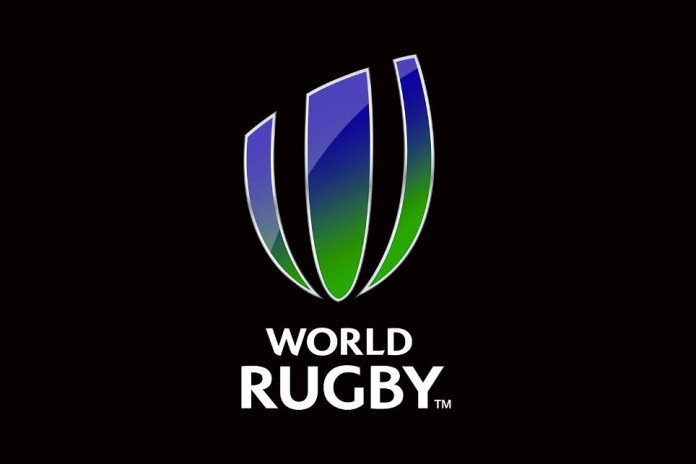World Rugby Council has approved historic and wide-ranging reform of its governance structures, creating a dynamic environment for wider union and regional representation and an independent skills-based voice on the international federation’s decision-making bodies.
- Expanded tier two union and regional representation on Council
- Executive Committee to include independent representatives
- Women’s Advisory Committee to be established
- New governance model to operate after May 2016 Council meeting
- Reform follows most successful Rugby World Cup to date and wide consultation
- Rugby experiencing record-breaking global growth with 7.2 million players
The World Rugby Council has approved historic and wide-ranging reform of its governance structures, creating a dynamic environment for wider union and regional representation and an independent skills-based voice on the international federation’s decision-making bodies.
With Rugby World Cup 2015 the most competitive, attended, viewed and connected Rugby World Cup to date, and rugby experiencing unprecedented growth and inspiring new audiences in more nations than ever before, the reforms will increase the number of unions and voting rights on World Rugby’s Council.
Designed to deliver a dynamic and representative decision-making environment, the reforms follow an extensive period of game-wide and external consultation and recognise the enormous contribution that member unions and regions make to the game. Revisions to Council include:
- Subject to meeting dedicated governance criteria (outlined in the notes to editors below), Council voting rights expanded to include unions who have qualified for the previous two Rugby World Cups and additionally unions who have made a major contribution to the growth and development of the game.
- All six regional associations to receive two votes on Council
The World Rugby Executive Committee’s remit and composition will be extended to deliver an even more modern, dynamic and streamlined governance structure and ensure an independent voice through the appointment of skills-based independent directors. The revisions include:
- Executive Committee to comprise 12 members (Chairman, Vice-Chairman, nine elected officials, two of which are independent members, and the Chief Executive)
- All World Rugby standing committees and advisory groups to report to the Executive Committee
- A new dedicated Nominations Committee to make recommendations to the Executive Committee regarding persons to be considered for membership of any World Rugby Committee or Working Group. The nominations committee will be made up of the two independent members from the Executive Committee, the Chairman of World Rugby and an elected member of the Executive Committee. One of the independent members will chair the Nominations Committee.
- Dynamic and streamlined environment to allow the Executive Committee to take any urgent decision between Council meetings. This now includes Laws and Regulations of the game.
A transitional Nominations Committee has been formed to begin the process of identifying the independent directors to be appointed to the Executive Committee, while the changes relating to Council composition and voting rights will be implemented after the May 2016 Annual Meeting of Council following detailed evaluation against the required criteria. This group will be chaired by Peter Sutherland, former European Commissioner, former Attorney General of Ireland and chairman/board member of many major international companies.
These robust reforms, coupled with a revised strategic plan to be launched in 2016, and World Rugby’s vibrant and inclusive new brand, reflect the international federation’s commitment to further the sport’s reach and engage and inspire new participants.
World Rugby Chairman Bernard Lapasset said: “We have enjoyed a very special and record-breaking Rugby World Cup in England and rugby is experiencing record participation growth, media interest and commercial appeal. We are reaching, engaging and inspiring more audiences than ever before. We are redistributing record sums in the development and sustainability of the game. Together we are successful and growing as a sport. That is the best reason for change.
“This exciting new model, developed following extensive review and consultation, will ensure that World Rugby, and by extension, the sport, has the governance structures and tools to support future growth as rugby continues to inspire and thrive.”
The changes follow extensive member union and independent consultation and represent an exciting development for the global rugby family ahead of its Olympic Games return and a first Rugby World Cup in Asia.
The reform programme was overseen by a dedicated governance working group, chaired by World Rugby Vice-Chairman Oregan Hoskins, and comprising Mike Hawker (Australia), Ian Ritchie (England), Steve Tew (New Zealand), Gareth Davies (Wales), Octavian Morariu (Rugby Europe), Pierre Camou (France), Brett Gosper (World Rugby) and Peter Sutherland (Independent).
Working Group Chairman Hoskins added: “Our world is changing rapidly and guided by our values of integrity and respect, we have delivered a dynamic, modernised structure that now opens the way for greater representation within our sport. I would like to thank our membership for their full and open contributions and members of the working group for their commitment to drive positive change for the benefit of the game at all levels.”
With women’s rugby now one of the world’s fastest-growing team sports and more than 1.5 million women and girls regularly participating, a dedicated Women’s Advisory Committee will be established to oversee the implementation of the women’s rugby strategy as the world’s top female players look towards rugby sevens’ debut at the Rio 2016 Olympic Games and Women’s Rugby World Cup 2017 in Ireland.
Additional notes
Key principles of the new World Rugby governance model
Recognising the aim of promoting the game universally, recognising the objectives of ensuring that the governance structure of World Rugby is fit for purpose and complying with the principles of good governance in sport, the Governance Working Group set out to achieve the following key principles:
- That the World Rugby governance model is adaptive to emerging trends given World Rugby mission of growing of the game
- World Rugby always acts with integrity
- Accountability and transparency in all decision making and processes
- That structures permit and facilitate timely and quality decision making and implementation
- World Rugby should be a model of best practice when compared to Olympic and other international federations
- That channels be created to address appropriate gender representation within the World Rugby governance model
To be eligible for Council membership a union must (as referenced within the main release):
- Fully comply with World Rugby Membership Criteria
- Be in good standing with World Rugby (and in particular that it has filed and continues to file all appropriate paperwork/reports required by World Rugby and has paid all fees which are due for its membership or the renewal thereof)
- Be a member of its regional association recognised by Council
- Be in good standing with its National Olympic Committee (NOC) and/or National Sports Ministry
- Be able to demonstrate good governance practice is in operation including but not limited to the following areas:
1. Constitution, Bye-Laws and Regulations fully applied
2. Five years of unqualified audited accounts
3. Five years of AGM minutes provided
4. Transparent links with membership evident
5. That unions have jurisdiction and control over players and the professional game in their union territory.
6. Comply with any national or regional legislation, in the area of good governance for sporting bodies.
World Rugby Council composition and voting rights
The number and spread of nations and their voting rights will increase for unions which conform to dedicated requirements.
Member union voting rights on Council will operate as follows, with unions receiving one vote for each criteria that is met up to a maximum of three votes:
- One vote and one representative: to member unions who have qualified for two consecutive Rugby World Cups within last eight-year assessment period
- One vote and one representative: to unions who have qualified for two consecutive Rugby World Cups within last eight-year assessment period and who participate in the Six Nations or The Rugby Championship
- One vote: to unions who have qualified for two consecutive Rugby World Cups within last eight-year assessment period and:
- have an annual audited average investment in rugby of £20 million over the last four years
- have bid to host major World Rugby events over last eight years or who are bidding for a World Rugby event in next four years
- have a sustainable women’s programme with participation in the Women’s Rugby World Cup or qualifiers in the past eight years
- have men’s and women’s sevens programmes – reflected by a minimum participation in regional competitions and or the World Rugby Sevens Series (men’s and women’s)
In addition:
- Two votes: to each of the six World Rugby regional associations
Subject to good governance criteria and the above criteria being met, a maximum of 20 unions and six regional associations will be eligible for a vote on Council. The process to determine union compliance with the criteria is already underway in order to facilitate implementation following the May 2016 Annual Meeting of Council.
World Rugby Executive Committee composition and remit
The World Rugby Executive Committee’s remit will be:
- All World Rugby standing committees and advisory groups to report to the Executive Committee from 1 November
- The Executive Committee will appoint persons to World Rugby’s standing committees and advisory groups
- Formation of a new Nominations Committee to make recommendations to Council regarding persons to be considered for Executive Committee membership
- Right of attendance and audience of Chief Medical Officer at Executive Committee
- The Executive Committee may make decisions in relation to any emergency and/or urgent matter that would ordinarily be within the purview of Council under Bye-Law 9.4 (excluding changes to the Bye-Laws, Laws or Regulations) as it sees fit by simple majority.
EXCO may make decisions in between Council in relation to any genuine emergency and/or urgent matter
















